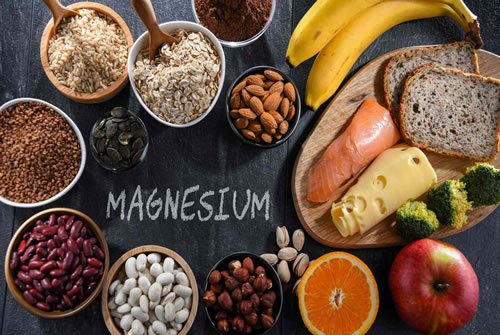Magnesium
Posted on May 6th 2023

Magnesium: The Master Mineral of Cellular Health
Magnesium, one of the most abundant minerals in the human body, often takes a backseat in popular health discussions. Yet, its roles are numerous and paramount. This essential nutrient plays a part in over 300 enzyme reactions, influencing everything from energy production to nerve function. Let's explore the impressive spectrum of magnesium's impact on our well-being.
What is Magnesium?
Magnesium is a macro-mineral, meaning our bodies require it in relatively large amounts compared to trace minerals. It's a cofactor in numerous biochemical reactions and has a pivotal role in energy production, protein synthesis, muscle contraction, and many other functions.
Benefits of Magnesium
- Muscle and Nerve Function: Magnesium helps regulate neurotransmitters, which send signals throughout the brain and nervous system. It also plays a vital role in muscle contraction and relaxation.
- Bone Health: Over 60% of the body's magnesium is found in bones, contributing to bone density and strength.
- Energy Production: A critical player in the conversion of food into energy, magnesium helps produce ATP, the main energy molecule in cells.
- DNA Synthesis: Magnesium is involved in creating and repairing DNA and RNA.
- Electrolyte Balance: Alongside other electrolytes like sodium, potassium, and calcium, magnesium helps maintain the body's proper balance of these crucial nutrients.
- Heart Health: Magnesium is fundamental for maintaining the health of muscles, including the heart, and for the transmission of electrical signals in the body.
Signs of Magnesium Deficiency
While severe magnesium deficiency is rare, it's not uncommon for people to get less than the recommended amounts in their diet. Symptoms of deficiency might include:
- Muscle cramps or twitches
- Fatigue and muscle weakness
- Irregular heartbeat
- Nausea and vomiting
- Numbness or tingling
It's essential to note that many people may be magnesium-deficient and not show any symptoms.
Sources of Magnesium
Including magnesium-rich foods in your diet is a proactive way to ensure you're getting adequate amounts:
- Green Leafy Vegetables: Like spinach and kale.
- Nuts and Seeds: Such as almonds, cashews, and chia seeds.
- Whole Grains: Including quinoa and whole wheat bread.
- Legumes: Beans, lentils, and chickpeas are all good sources.
- Dark Chocolate: A delightful source, but moderation is key!
Supplementation
For those who struggle to meet their magnesium needs through diet, supplements can be beneficial:
- Types of Supplements: Magnesium comes in various forms, including magnesium citrate, magnesium oxide, and magnesium glycinate. Each type has different absorption rates and uses.
- Dosage: It's crucial to follow the recommended dose and consult a healthcare professional before starting supplementation.
Conclusion
Magnesium, a veritable workhorse of cellular function, underscores the adage that sometimes the most vital things operate behind the scenes. By recognizing and honoring its pivotal role, we can better support our body's myriad functions and overall vitality. As with any nutrient, achieving the right balance is key, emphasizing the importance of informed choices and professional guidance.
 Loading... Please wait...
Loading... Please wait...